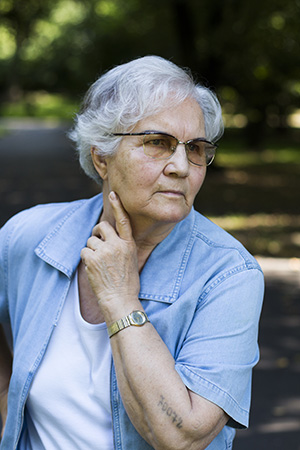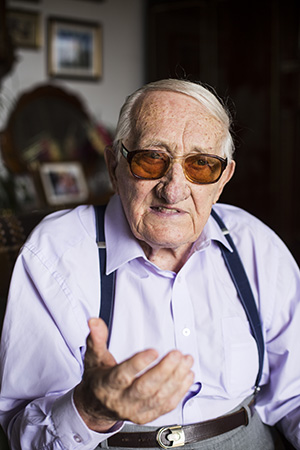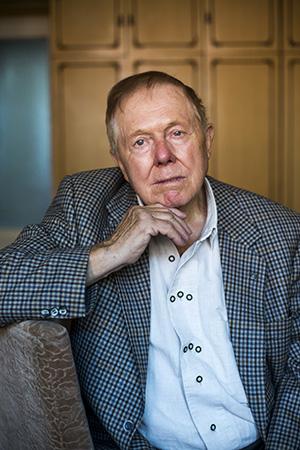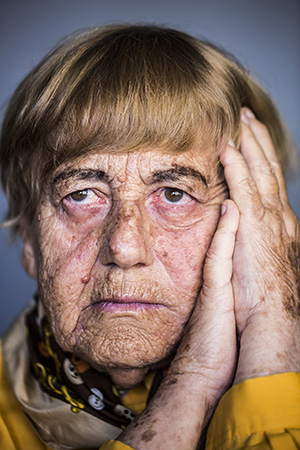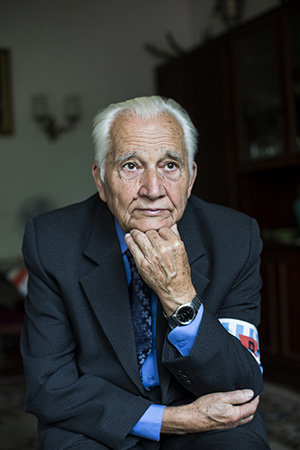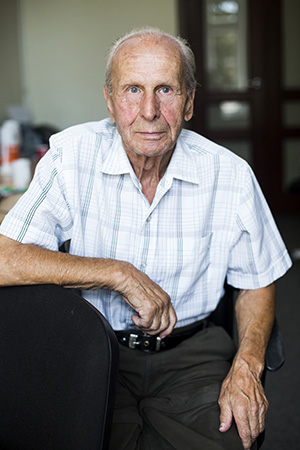
Photo by Andrzej Banaś
It’s just terrible
to say these
were Polish
camps.
It’s disgraceful
and unacceptable.
The camps
just cannot
go down
in history
as ‘Polish’
Play Broadcast 1
Play Broadcast 2
So many German atrocities, so much torment, so many tears… How is it that these camps are now Polish all of a sudden? wonders Stefan Lipniak, now aged 92, who went through the hell of four different German camps: ZAL Klein Mangersdorf, Arbeitserziehungslager Rattwitz, ZAL Markstädt, and KZ Auschwitz III Monowitz.
For Stefan Lipniak, his blissful youth and happiness came to an end at the tender age of 17. He was arrested by the Gestapo on the night of 26 June 1941. He and many other people were victims of the organisation of a high-ranking SS officer Albrecht Schmelt, who had come up with the idea of deporting thousands of young Polish and Jewish people to forced labour camps in Upper Silesia. The Germans carried out massive construction works, and they needed countless numbers of strong and fit men. However, their design was also to destroy the Polish nation through slave labour, says Stefan, who was one of many builders of the motorway in the Gliwice area.
The prisoners would work 14 to 16 hours a day. Despite the gruelling workload, they received only one meal a day. Little or no relief could be expected from a good night’s sleep, as the camp was rife with bugs and lice.
Stefan Lipniak was detained in ZAL Klein Mangersdorf for a year. He then went to Arbeitserziehungslager Rattwitz and ZAL Markstädt, and ended up in KZ Auschwitz III in 1944. He was transferred to KZ Auschwitz III Monowitz to work for the German chemical holding IG Farben, which relied heavily on cheap or forced labour. At KZ Auschwitz III, Stefan Lipniak faced the same conditions as in the other camps: cramped spaces, starvation, violence and death. Three or four people in my team died every day. They were immediately replaced with new ones, explains Lipniak. According to the estimates provided by the Auschwitz-Birkenau State Museum, about ten thousand people working for IG Farben alone died in KZ Auschwitz.
Despite the back-breaking work and terrible living conditions, Stefan Lipniak managed to survive. Having no intention of waiting passively for his liberation, he fled German imprisonment in dramatic circumstances. He escaped with the Death March convoy. With the Red Army advancing to the West, KZ Auschwitz-Birkenau and Monowitz were hastily evacuated. It was absolutely freezing and we were driven on foot to the West. A lot of people died during the march from exhaustion, starvation and freezing weather… The SS officers would have killed a prisoner like me without batting an eye, says Stefan Lipniak.
With the end of World War II, Stefan Lipniak decided to focus on his lifelong passion: football. He worked as a referee in the Małopolska regional divisions for over twenty years. Despite his age, he still has an extremely detailed memory of the atrocities. Whenever he hears about “Polish camps”, his voice begins to crack with emotion. It’s just terrible to say these were Polish camps. It’s disgraceful and unacceptable. The camps just cannot go down in history as “Polish”, says Stefan Lipniak.




